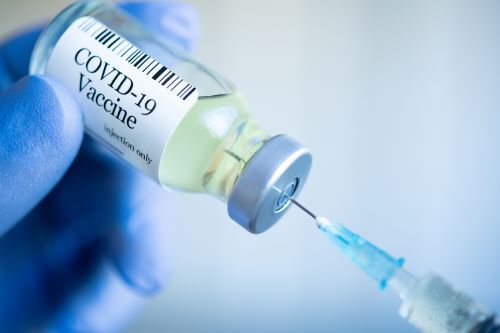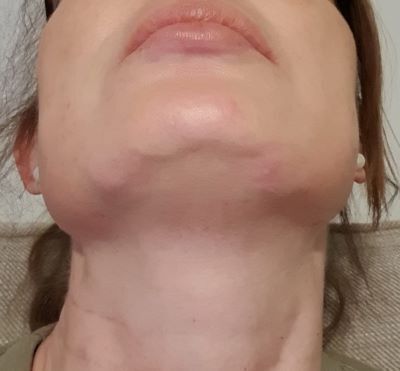Covid-19 vaccines and dermal fillers: What you need to know.
By Dr Martina Pirklova
Dip Imp Dent RCS (Eng). Level 7 Certificate in Injectable Aesthetic Non-Surgical Interventions
As we open our doors again this week and welcome you back for treatments it’s a real turning point, and one which I’ve been looking forward to for many months.
But, with recent reports from the USA of a small number of patients with dermal fillers reacting to the Covid-19 vaccine, I’m also aware that some of you may have questions and concerns.
Firstly, let me reassure you that the reactions that occurred affected a very small number of patients (just 3 out of 15,184 in the Moderna trial) who experienced redness and swelling at the site of their filler injections. In all cases the swelling was localised and either resolved itself or was easily managed with the use of over-the-counter antihistamines or prescription steroids.
Two patients in the Pfizer trial also experienced a similar reaction. There was nothing to suggest that patients with more recent fillers were more impacted than those who had had them for a while.
Although these findings warrant further investigation, the evidence to date is limited. For instance, we do not know how many of the total number of patients involved in the trial had dermal fillers, so we have nothing to compare the numbers to.
Unfortunately, this means that although they have now been the subject of a number of news articles, the statistics alone do not provide a reliable indicator of risk level for patients.

Why is the vaccine causing this type of reaction?
Dermal fillers are injected into your skin, to add volume and contours and reduce the appearance of deep lines and folds. The filler itself consists of hyaluronic acid, a naturally occurring sugar found in the body. Hyaluronic acid works by pulling water to it, thereby hydrating the surrounding skin tissue and stimulating collagen production, resulting in increased plumpness and elasticity.
Reactions to dermal fillers can be triggered by an immune response to many things, not just the Covid-19 vaccine. The immune system can become stimulated as the result of a viral or bacterial infection, a vaccine or even dental work, it then begins to defend the body from attack by producing antibodies.
The human body is so efficient that as well as fighting the infection it may also react to other foreign bodies, such as filler sites. It produces extra fluid to send antibodies to these areas in an attempt to heal them, but as hyaluronic acid naturally pulls water to it this includes the extra fluid carrying the antibodies, which is why areas with fillers may become more swollen and inflamed.
Is there anything I can do to reduce the chances of experiencing a reaction?
Our priority as always is to ensure all of our patients receive the best natural results in the safest way possible. With this in mind, we will continue to carry out a very detailed and informed consent process before every procedure and I can assure you that if we, or you, have any concerns we will not move forward with your treatment.
Given what we know, I would recommend that all our patients leave a period of four weeks either before or after receiving a Covid-19 vaccine and having a dermal filler procedure. This will give enough time for your immune system to settle down and reduce the likelihood of experiencing any redness or swelling at the filler sites. Should you experience a reaction it will also reduce the chance of you experiencing it concurrently with a reaction to the vaccine.
Will I be affected?
Because we are all different it is impossible to predict who might get a reaction and whether that will be from the Covid-19 vaccine, a virus or having your flu jab. It is also important to bear in mind that some individuals may have genetic predispositions to this type of immune reaction, which is something we cannot predict, but which the research seems to indicate will certainly not be the case for the majority of patients.
What we can say with confidence, is that these reactions at dermal filler sites are temporary and usually settle down fairly quickly on their own. If needed you can use over the counter antihistamines or prescription steroids to treat them.
I have only had one patient so far report any adverse reaction to areas where she’d had fillers following the 2nd dose of the vaccine. In her words:
“I had my second yesterday and I remember reading somewhere that fillers can swell. Well, the filler in my jaw has and I can feel painful lumps. I'm not bothered as I read somewhere this could be a possible side effect. I'm going to take some antihistamines and worst-case scenario, I'll get it dissolved when you open again. It was Moderna and there have been very rare cases with this vaccine.”

As you can see from the picture, the swelling was very localised. Three days later the swelling had totally disappeared and she sent me this email:
“All good news and the swelling has disappeared. It didn't happen with the first dose, but the second dose is a bitch and really takes you down for a day. Just the immune system working correctly. Thanks for all of your advice and I hope to see you soon.”
As the vaccines themselves are still very new the amount of research we have to work with is very limited. The good news is that as more of us are receiving our Covid-19 jabs, the more information we will have available to us. It also means that, inevitably, the number of patients experiencing a reaction will increase, but we will continue to monitor the information available to us and update you if anything changes.
And finally…
Experts still agree that the benefits of having the Covid-19 vaccine outweigh the risk of side effects, including reactions to dermal fillers. If you were one of the few patients to have a reaction, it would be temporary, and we know how to manage it.
If you have any concerns, then please do get in touch via our contact page.
I look forward to seeing you soon.
Follow us on social media to see before and afters, patient journeys, informative stories, and to find out more about the other treatments we offer.